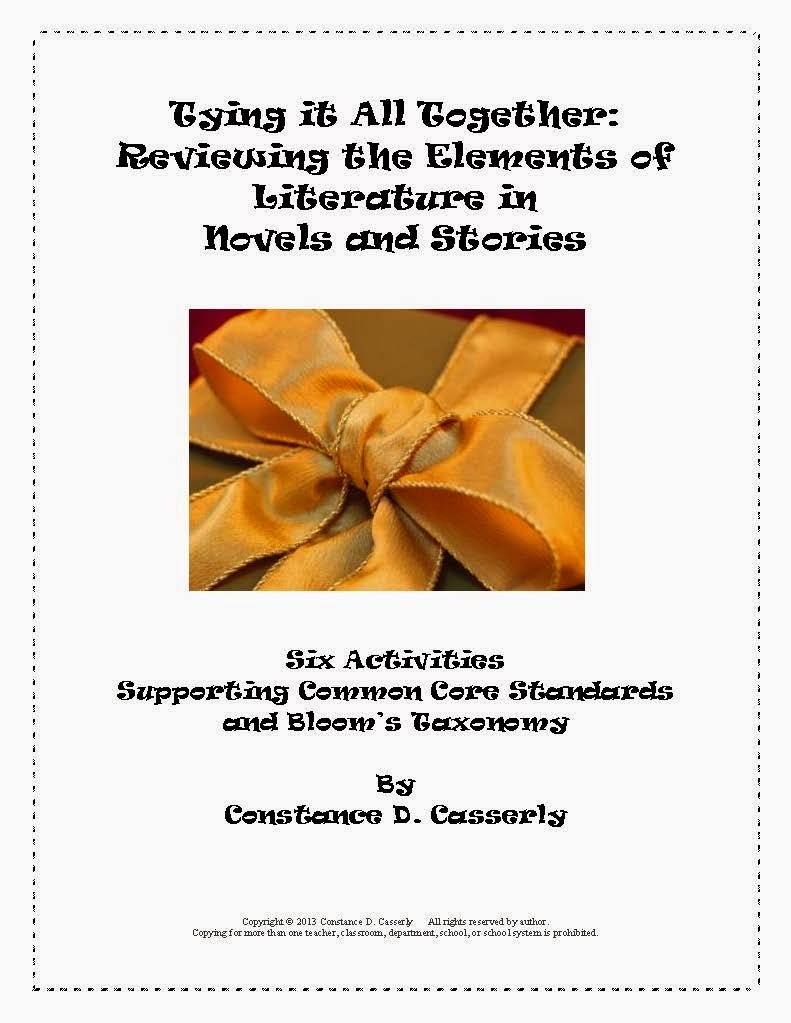by Connie Casserly TpT Store: Connie
With every unit that they design, teachers strive to inspire their
students with lessons that are motivational, interactive, and
meaningful. Formulating plans into modules that do this while
reinforcing previously learned concepts, promoting comprehension and
instilling deductive, critical and analytic thinking skills is a
challenge.
When teachers introduce new concepts, they need to
offer their students activities where the latter can Hear, Read, Think,
Write, Speak and Do as often as possible. Lessons that communicate
specific assessments and outcomes, clear teacher (Directed Method) and
student-centered (Constructivist Method) activities, as well as
opportunities for students to accept ownership of their work lead to
success and satisfaction for teachers and their charges. In other words,
for optimal learning, they need to strategically combine both methods
into a Teach Me, Help Me, Let Me strategy.
When designing monthly plans, teachers should consider:
- Who is learning (student needs and learning styles)
- What students know/must learn (knowledge/understanding)
- Where students are to end up (goals)
- When they are to learn (Time-Frame)
- Why (objectives: begin with the end in mind)
- How (Teaching Strategies)
- Closure (Three ideas/concepts/skills students take with them each day)
Each unit takes approximately one month, depending on the number and the length of class periods. Grammar and vocabulary lessons stem from the reading comprehension and writing activities. For the grammar lessons, the concepts reinforced or taught are dependent on the skill needs students reveal in their writing. Vocabulary lessons may focus on grade level literary terms that stem from the reading or on teacher-generated lists. Activities and examples reinforce any new material.
This method offers students a time- management rubric that builds responsibility. Students receive the calendars at the beginning of each unit. This way, they are always aware of class work, homework, projects, tests, etc. and can prepare accordingly. Excuses for unfinished homework or for coming to class unprepared for planned assessments diminish. Ensuring that parents get an agenda-electronically or by another method- shows students that teachers and parents are working together for the students’ success.
The malleability allows for adjustments according to class needs and student understanding. By incorporating elasticity, teachers ensure that the material will be covered and the standards met, even with interruptions, i.e. standardized testing, snow days, or assemblies. Most days a literature discussion will comprise the bulk of the period. Discussions of the reading offer flexible time frames which can be lengthened or shortened, depending on the students’ needs. If teachers have to combine some activities into group or individual work, or shorten vocabulary and grammar activities, they still can ensure that crucial standards remain a part of the lesson.
Studying the writing process takes place on days when the teacher and students brainstorm essay topics, and also on peer critique days. Since the more they write the better they will master the What they Write along with the How they Write It concepts, ten to fifteen minute Warm- Ups work while the teacher takes roll. Some days, teachers may focus on specific issues that appear in papers during grading by choosing anonymous student examples for Warm-Up prompts that reinforce grammar, usage and writing principles.
Beneficial Monthly Agenda Planning Hints
- When deciding on the day-by-day class work and assignments, plan for essays, tests, projects and other graded assessment to be due Mondays through Thursdays to avoid burn-out. Slate graded work for a Friday only if the school follows a Block Schedule where classes meet every other day, leaving Monday for grading. Weekends should not be used for grading.
- For assignments that take a more extensive review, set a different due date for each class. With only one packet to grade each day, this work won’t be overwhelming. For example, with three classes completing projects for The Crucible by Arthur Miller, schedule one each for the two days preceding the final test, and the third due the day after the test.
- Schedule shorter assessments, i.e. quizzes, which can be graded quickly, for the same day.
- Monthly plans mean that teachers never have to worry about life getting in the way of teaching. When family emergencies, illnesses, unannounced observations and other factors threaten their stress level, they have their preset agendas ready.
- With this method, teachers may expend their energies where they are most needed -with the students.
- After some tweaking and explanations, teachers can leave these plans for a substitute. Instead of a class discussion, the students can work individually or in groups to address the material.
Monthly agendas offer clear communication between teachers and their students, teachers and parents, and teachers and administrators. The objectives are always set from the first moment of planning, and the activities, assignments, projects and assessments follow. The calendars offer smooth and productive educational journeys.
Set the pace and enjoy some peace with monthly agendas.
Connie
Try these three FREE coordinating activities
Comprehension Assessment Activity - "Exit Pass"
Comprehension-Reviewing Texts Activity: Tying it All Together
Reading Comprehension & Writing -What Do I Know? How Do I Know It?

This FREE 10-page activity offers teachers 8 activities that will help students will advance their understanding of each aspect of Bloom's Taxonomy: Remember/Understand, Apply, Analyze, Evaluate and Create.

This unit plan for 'The Crucible' by Arthur Miller is 51-pages and based on CCS and Bloom's Taxonomy. For grades 7-12, it contains day-by-day lesson plans, vocabulary, act-by-act study questions, 27 worksheets, as well as essay and project topics and a test with the answer key.


Thank you, C.L.A.S.S. for sharing my ideas on how teachers can save their sanity by making their weekends a No Planning/Grading Zone. Much appreciated.
ReplyDeleteConnie